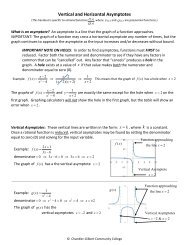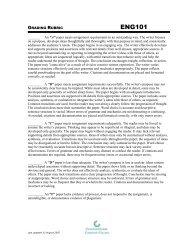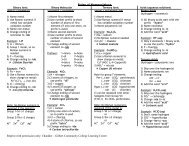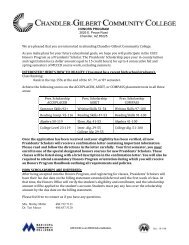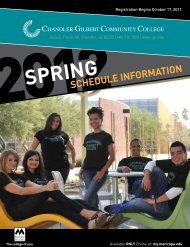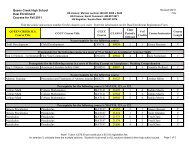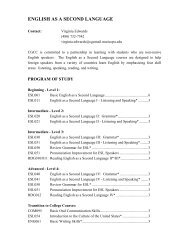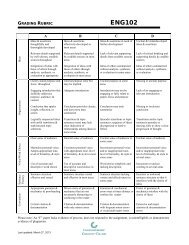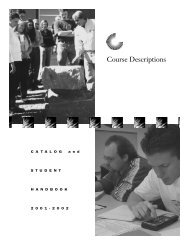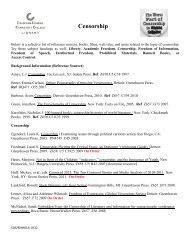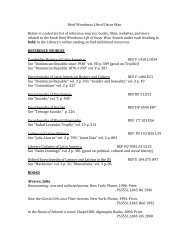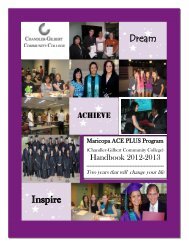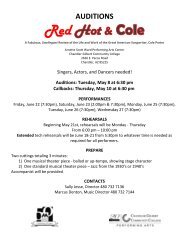Tutor Training Manual.indd - Chandler-Gilbert Community College
Tutor Training Manual.indd - Chandler-Gilbert Community College
Tutor Training Manual.indd - Chandler-Gilbert Community College
You also want an ePaper? Increase the reach of your titles
YUMPU automatically turns print PDFs into web optimized ePapers that Google loves.
Characteristics of Successful <strong>Tutor</strong>s<br />
5<br />
Successful tutors:<br />
• Have fun!<br />
• Are on time and prepared.<br />
• Are friendly and acknowledge students (by name if possible) when they arrive.<br />
• Encourage the student to develop good examples/discover examples provided in the<br />
text.<br />
• Let the tutee do the work.<br />
• Ask leading questions to help students learn and understand the material.<br />
• Are patient and provide appropriate “think” time.<br />
• Provide encouragement.<br />
• Are aware of their nonverbal communication.<br />
• Check the tutee’s learning by having the student summarize information at the end of<br />
the session.<br />
• Are aware of and acknowledge cultural differences while treating tutees consistently and<br />
with respect.<br />
• Relate successful study strategies to the tutee.<br />
• Use questioning rather than answering strategies.<br />
• Pay attention and are sensitive to the self-esteem issues of each tutee.<br />
• Are able to explain concepts from several different angles.<br />
• Focus the session on the process of learning rather than on the correctness of the<br />
answer.<br />
• Rotate around the room spending time evenly with students.<br />
• Conduct themselves in a professional manner.<br />
• Provide a safe learning environment.<br />
• Encourage students to fill out a tutoring evaluation form.<br />
• Attend tutor training and “Hot Topic” meetings.<br />
• Help to maintain the cleanliness of the center.<br />
Successful tutors DO NOT:<br />
• Teach magic tricks.<br />
• Expect the student to hear and remember everything they’ve said.<br />
• Say, “This is easy” or use any other phrase that might imply the student is not smart.<br />
• Put down or criticize the student or their abilities.<br />
• Solve the problem or give the answer. The student should be holding the pencil.<br />
• Criticize a teacher or the assignment.<br />
• Go too fast.<br />
• Make off-color jokes or suggestive comments to students.<br />
• Use profanity.<br />
• Waste the student’s time talking about themselves.<br />
• Over socialize with other tutors when not tutoring. When students think you’re<br />
busy talking they’ll be discouraged from asking questions because they don’t want to<br />
interrupt you.



